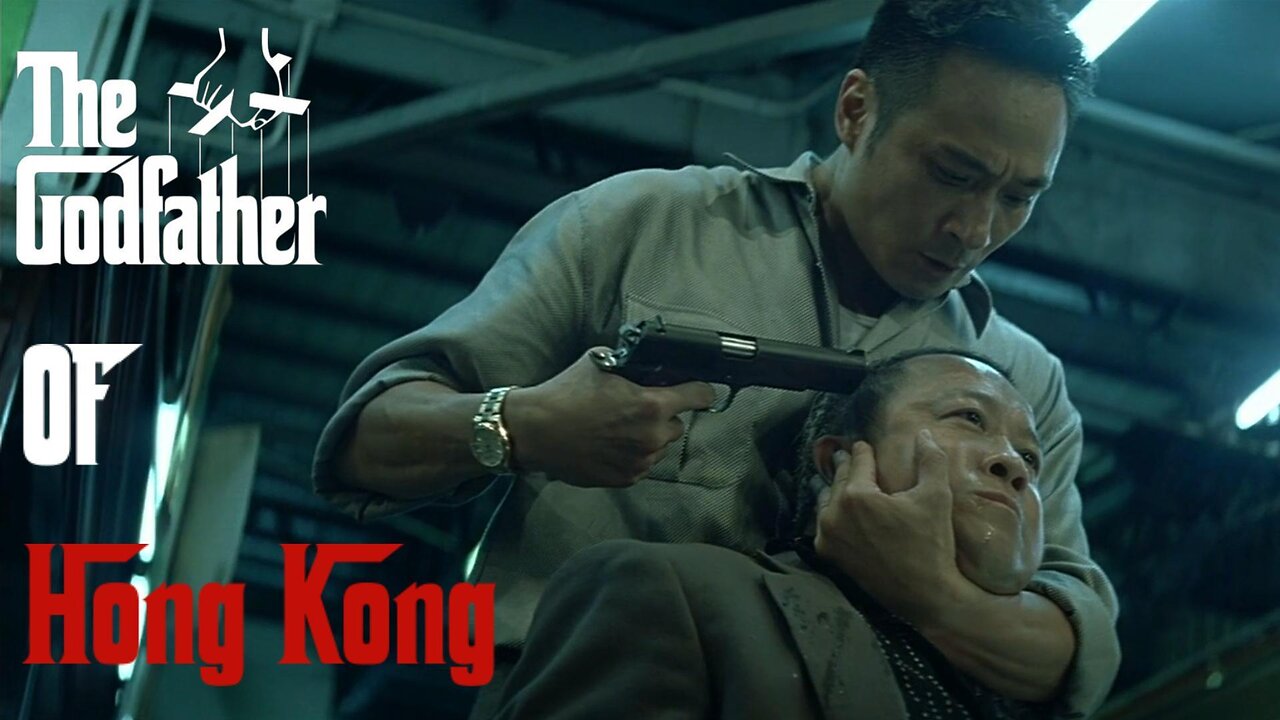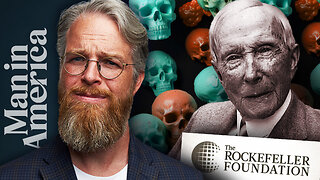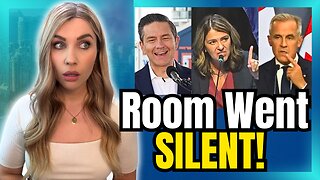Premium Only Content

Infernal Affairs II - The LAST Glory of British Hongkong Movie | The Oriental Godfather Movie Review
If you are interested in far east, especially Hongkong movie, you don't want to miss this episode.
Infernal Affairs II is not just a prequel to the iconic Infernal Affairs series—it is a cinematic masterpiece that delves deep into the complexities of loyalty, betrayal, and identity, all set against the transformative backdrop of 1990s Hong Kong. While continuing the franchise’s signature focus on the blurred lines between good and evil, this film elevates its narrative by embedding the societal and emotional tensions of a city on the brink of monumental change.
The story centers on the rise of Ngai Wing-Hau, a calculated and enigmatic triad leader who steps into his father’s shoes following a shocking assassination. At the same time, it explores the moral dilemmas of Lau Kin-Ming and Ngai Wing-Yan, undercover operatives navigating their divided loyalties. The characters' personal struggles reflect Hong Kong's broader identity crisis during the years surrounding the 1997 handover, as the city grappled with the loss of British rule, the uncertainty of its future under Chinese sovereignty, and a desire to preserve its unique culture.
The film is rich with subtext and hidden layers. For instance, Ngai Wing-Hau’s dialogue about the skyrocketing value of his property serves not only to highlight Hong Kong’s volatile real estate market but also to reflect the social upheaval and shifting power dynamics of the time. His remark about emigrating before 1997 captures the fear and unease many Hongkongers felt during this transitional period, while also setting the stage for his calculated revenge against triad bosses who doubted his leadership.
The meticulous attention to detail—such as the use of Rolex watches to signify power hierarchies or the framing of key scenes in iconic Hong Kong locations—adds depth and authenticity. Scenes like the family banquet showcase a blend of tension and tradition, with Ngai’s deliberate trap for undercover operatives unfolding in a quiet yet explosive manner. These moments don’t just drive the plot; they underscore the complex interplay of loyalty and survival in a world where trust is a rare commodity.
Thematically, Infernal Affairs II explores the blurring of moral boundaries. The police, ostensibly on the side of justice, resort to manipulation and morally ambiguous tactics, while the triads, rooted in violence and crime, are shown as fiercely protective of family bonds. This duality is embodied in Ngai Wing-Hau, whose actions as a ruthless leader are tempered by his dedication to his family, creating a character as compelling as he is dangerous. His confrontation with Ngai Wing-Yan in a pivotal alley scene—where he spares Yan despite knowing his undercover identity—adds layers to his persona, drawing parallels to The Godfather while forging a distinctly Hong Kong narrative.
Beyond its intricate plot, the film is a poignant reflection of Hong Kong’s socio-political context. The departure of the British brought a sense of loss and nostalgia, while the approach of Chinese rule fueled fears and uncertainty. These emotions are woven into the fabric of the story, making it not just a crime drama but also a deeply resonant historical snapshot. The tension between tradition and modernization, loyalty and ambition, mirrors the city’s own struggles, giving the film an emotional weight that lingers long after the credits roll.
The performances further elevate the film. Francis Ng’s portrayal of Ngai Wing-Hau is a masterclass in subtlety and intensity, capturing the quiet authority of a man who commands respect and fear in equal measure. Anthony Wong as Wong Chi-shing and Eric Tsang as Hon Sam bring gravitas and complexity to their roles, embodying the moral conflicts that define the series. Each actor contributes to a tapestry of richly drawn characters whose fates are as intertwined as they are tragic.
For viewers, Infernal Affairs II is more than a prequel—it is an essential piece of the trilogy that adds depth and context to its predecessor. It expands the world of Infernal Affairs, enriching its themes and characters while standing as a powerful film in its own right. Its layered storytelling, emotional depth, and attention to cultural and historical detail make it a standout in Hong Kong cinema, a timeless reflection of a city’s identity and resilience.
Ultimately, Infernal Affairs II isn’t just about the triads or the police—it’s about the human experience in times of profound change. It invites us to reflect on loyalty, ambition, and the sacrifices made in the name of survival, all while capturing the essence of an era. Watching this film is like stepping into the soul of 1990s Hong Kong—a city caught between worlds, fighting to define itself amidst the tides of history.
0:00 Introduction
0:41 Movie Story - Part 1
07:50 Rolex, Hotpot & Foodstall
10:42 Movie Story - Part 2
13:54 End of a Golden Era
-
 1:31:29
1:31:29
Brandon Gentile
1 day ago25 Year Wall Street INSIDER: $1M Bitcoin Soon Is Just The START
62 -
 LIVE
LIVE
SpartakusLIVE
4 hours ago#1 Birthday Boy Celebrates with MASSIVE and HUGE 4.8-Hour Stream
345 watching -
 DVR
DVR
Man in America
6 hours agoFrom Oil Barons to Pill Pushers: The Rockefeller War on Health w/ Jeff Adam
8.01K1 -

Barry Cunningham
3 hours agoBREAKING NEWS: PRESIDENT TRUMP THIS INSANITY MUST END NOW!
53.7K99 -
 LIVE
LIVE
StevieTLIVE
2 hours agoWednesday Warzone Solo HYPE #1 Mullet on Rumble
122 watching -
 5:58
5:58
Mrgunsngear
4 hours ago $0.78 earnedBreaking: The New Republican Party Chairman Is Anti 2nd Amendment
4.46K5 -
 LIVE
LIVE
Geeks + Gamers
3 hours agoGeeks+Gamers Play- MARIO KART WORLD
226 watching -
![(8/27/2025) | SG Sits Down Again w/ Sam Anthony of [Your]News: Progress Reports on Securing "We The People" Citizen Journalism](https://1a-1791.com/video/fww1/d1/s8/6/G/L/3/c/GL3cz.0kob.1.jpg) 29:34
29:34
QNewsPatriot
3 hours ago(8/27/2025) | SG Sits Down Again w/ Sam Anthony of [Your]News: Progress Reports on Securing "We The People" Citizen Journalism
6.93K1 -
 25:12
25:12
Jasmin Laine
8 hours agoDanielle Smith’s EPIC Mic Drop Fact Check Leaves Crowd FROZEN—Poilievre FINISHES the Job
13.6K19 -
 11:33:26
11:33:26
ZWOGs
12 hours ago🔴LIVE IN 1440p! - SoT w/ Pudge & SBL, Ranch Sim w/ Maam & MadHouse, Warzone & More - Come Hang Out!
6.94K